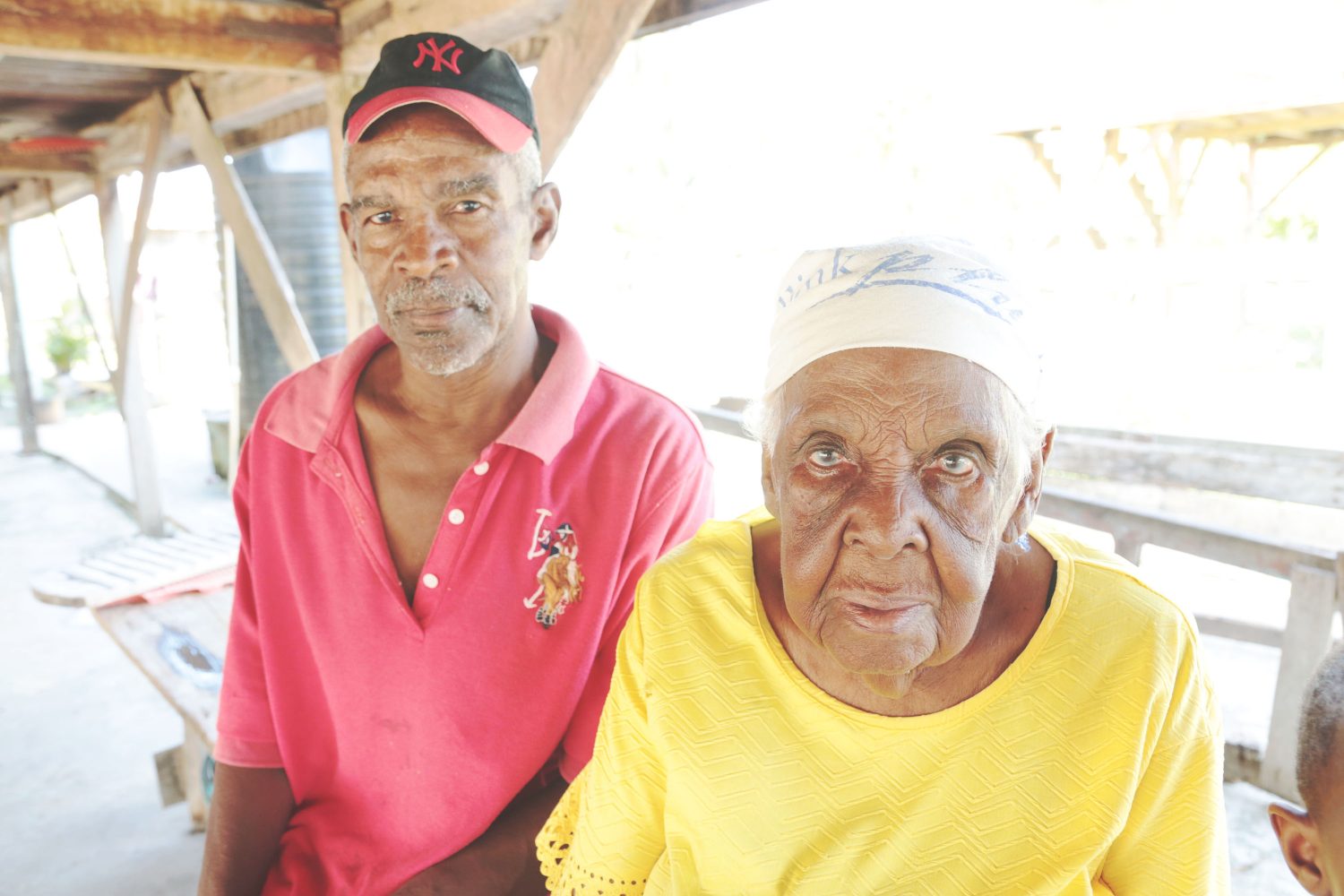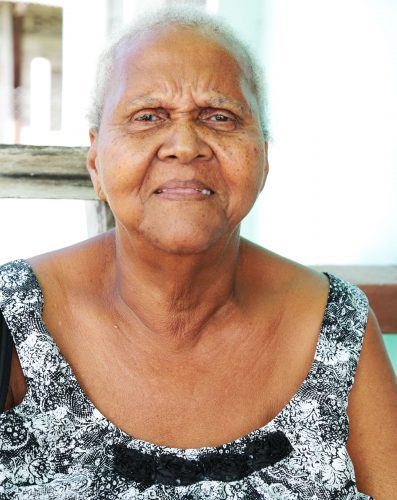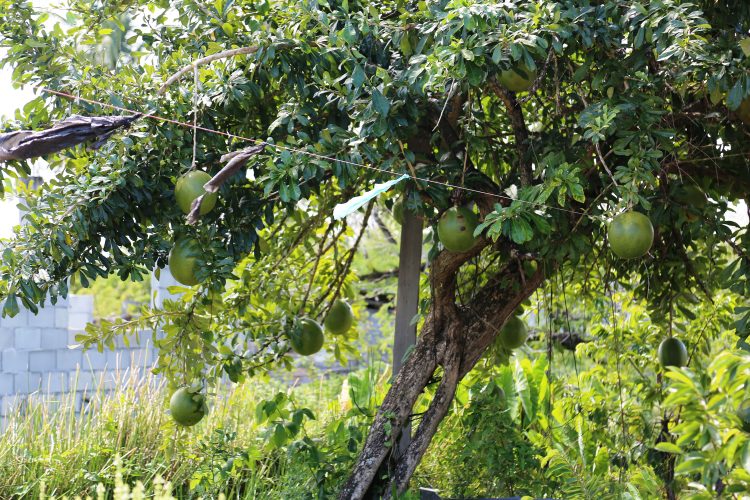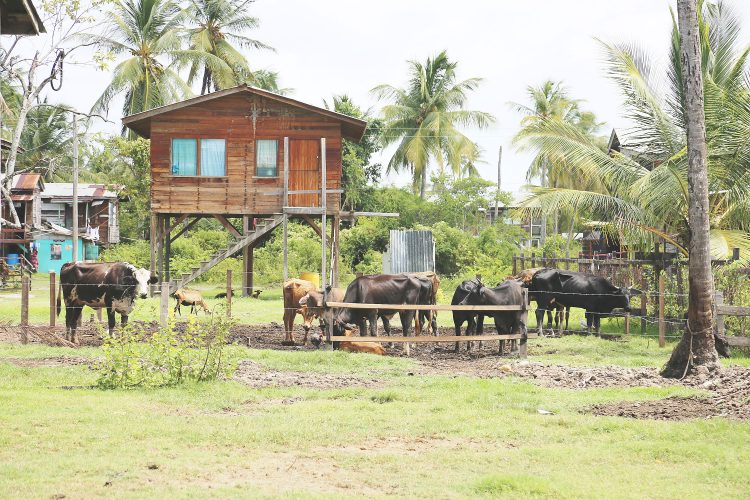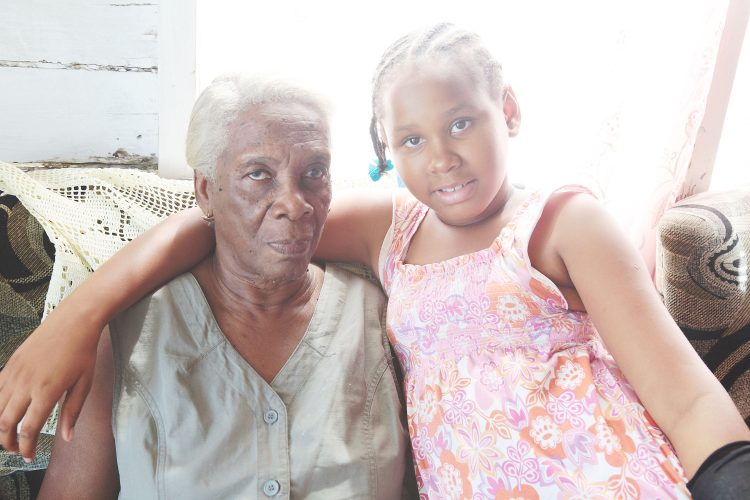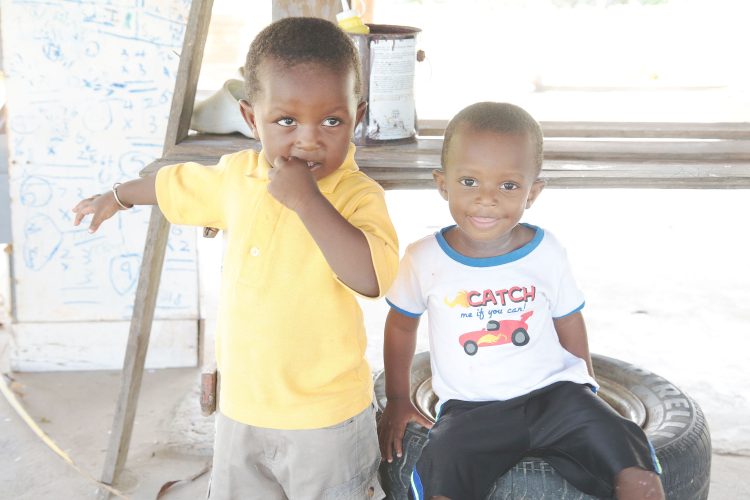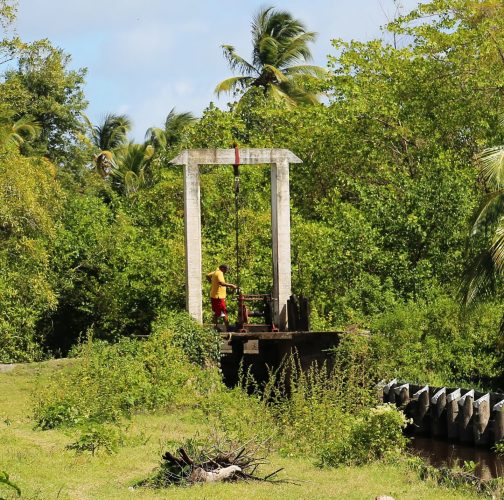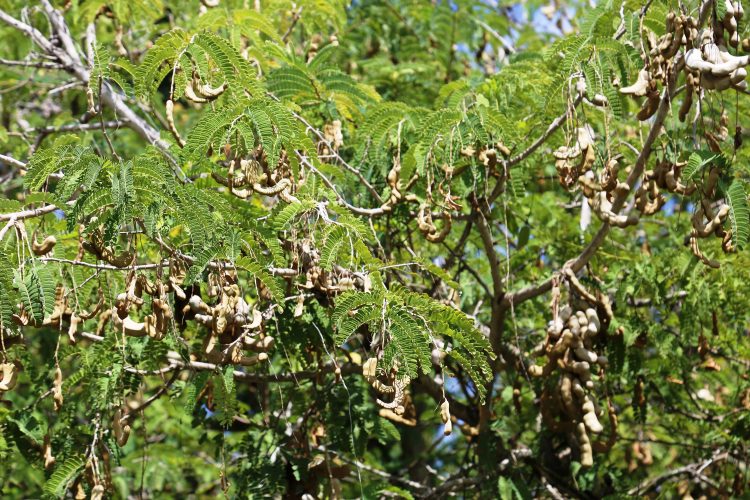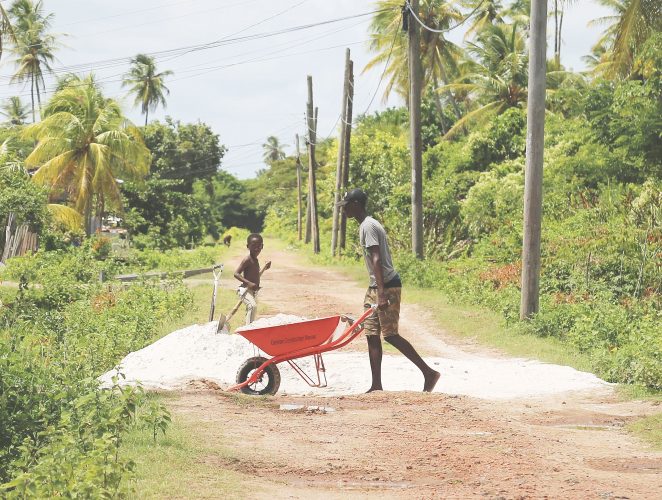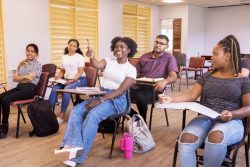Voorzigtigheid was what it was once called, today it’s known as Jonestown, a sprawling village situated at Mahaica some 37.5 kilometres from the city tucked between Hand-en-Veldt and the vegetation leading to the Atlantic Ocean. Jonestown is believed to have been settled since the time of the Dutch and today serves as an oasis for its more than 300 residents.
My trip to the village began by taking a car to Helena Number 2, also in Mahaica, then a taxi; buses run along the road to Jonestown as well.
From outside of the village, Jonestown houses look snug together, lot after lot, but a closer look reveals that houses sit yards apart and coconut trees occupy vacant lots.
I was able to meet a few of Jonestown’s golden citizens. A gentleman who everyone called Uncle Sprinkle is 100 years old. He is blind and was not up to talking to anyone, especially a stranger he could not see. Then there was Mooria, who is 92 years old but cannot hear well.
I was also able to meet Cousin Ruby, Cousin Grace and Cousin Audrey and no, they are not cousins; this is just the way the older folks here refer to each other, although most residents of Jonestown are said to be related.
“It was said that there was a man living here by the name of Jones and that’s how the village got its name. I never know him, but according to my mother and grandmother who lived here, that’s what I know,” said 95-year-old Ruby Hunte, who can still watch television and read newspapers without glasses.
It was Hunte who first claimed that the entire Jonestown is related. She further said that some of the early residents were the Joneses, Wilsons and Hopes.
She attended the Mahaica Scot School now called Mahaica Primary. “We had what you called ‘Small ABC’, ‘Big ABC’ then there was first to sixth standard, there was also senior six, but I never reach that level; we were too poor. I left school in 1938 at 16 and after that life was really hard. I began working at 16,” she related.
As the eldest of five children, she felt she had it harder. Today only Hunte and her 92-year-old sister, Ursula Rutherford remain alive.
Her first job was extracting copra from which coconut oil is made. She learnt also to make cassava bread and other cassava products like cassareep. Later she was a vendor at the train station in Mahaica and then at Bourda Market. She would catch the big buses that worked in those days at midnight and arrive at Bourda an hour later. It was important to be there in the wee hours of the morning, Hunte noted, as that was the time wholesalers came to buy and most of her customers came all the way from Linden.
Hunte said she likes Jonestown, the quiet, the breeze, the people and she could never leave her village for anywhere else. She chuckled that she does not even go to the next street. However, she does visit the Seventh Day Adventist Church as often as she can, she said.
Her son, who was present, said that when people hear of Jonestown they often think of the Jonestown massacre that happened in Port Kaituma. He revealed that at that time he worked with the Guyana National Service and was stationed in Matthews Ridge for two years. He shared that he did pass through the area, which was situated in a backdam behind a village called Arakaka, a few times. However, two weeks prior to the incident, he returned to Georgetown. A lot of persons he met soon after, he said, thought the gruesome event had occurred in his village, which had been in existence long before the Port Kaituma village.
Eighty-year-old Grace Grant-Vanhermanstein was on her verandah taking in the midday breeze. She has been blind for five years, but having a conversation with her, you could never tell. She was born in Mahaica and is the eldest of 13 children, 10 of her siblings are still alive. After getting married she moved to Jonestown with her husband and their union produced six children, but one died.
“I grew up in a Christian church where my father was a preacher. I tried to keep it like that after I got married. I grew up in church learning to play the piano which I did for church and concerts and I sang as well.
“Going to school was a bit tough for me because I had to help with the smaller ones before heading to school and then I had to help out with chores around the home,” she said. Over the years she took academics and sewing classes. Sewing was one of her strong points and after leaving the Mahaica Scot School she went on to pursue sewing at the Carnegie School of Home Economics. She went back and forth to Georgetown every day with the train. Her first train ride to the city she recalled, her father went along with her and showed her where to get off and where her school was located. She went by herself after that and with friends also.
Then after she got married she took on sewing full time and would make from little dresses to suits to wedding gowns. During this time, people who had daughters at home from school during the August vacation would request that she teach them how to sew which she did for a long time.
Years after, she worked at the Toucan Headwear Factory where she sewed leather bags for export. She took her daughter along to help out and soon the idea crossed her mind to take the same business up locally. This she did with her daughter as her aide and together they supplied leather handbags to Guyana Stores but then she began travelling and the business stopped. It was on one of these travels, she said, that she got up one morning and as it usual for her to read, she picked up a book but realized she was having trouble seeing; her eyesight went quickly after that.
Today she lives with her granddaughters who are always around should she need them.
She wishes that the youths of her village can be more adequately provided for in terms of employment.
Audrey Johnson was born just across from where she lives today. The 74-year-old pointed out that the roads were all red and so in the rainy season they walked to school barefooted and when they got there they washed their feet and put on their yachting boots.
Her father worked as a plate layer at Transport and Harbours Department and she recalled there were times when the train broke down except he never said “broke down” but would say the train “derailed”. This saw him leaving them to work in the night until it was fixed.
She attends the Jesus Elam Church in Hand-en-Veldt (the village next door). She loves to travel but noted that Jonestown will always be home. “The place is quiet and it’s family oriented. I’m comfortable here. I have everything I need.”
